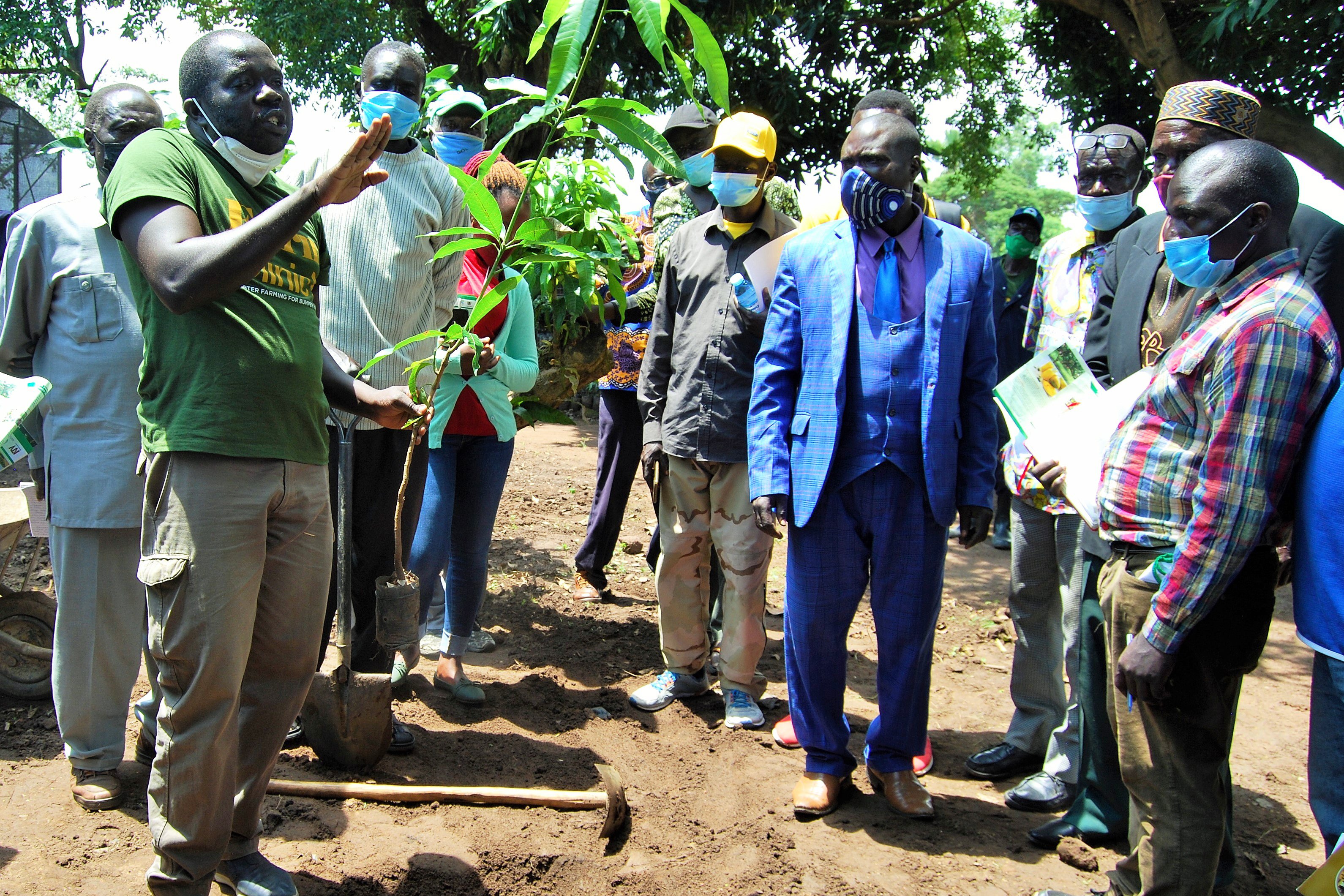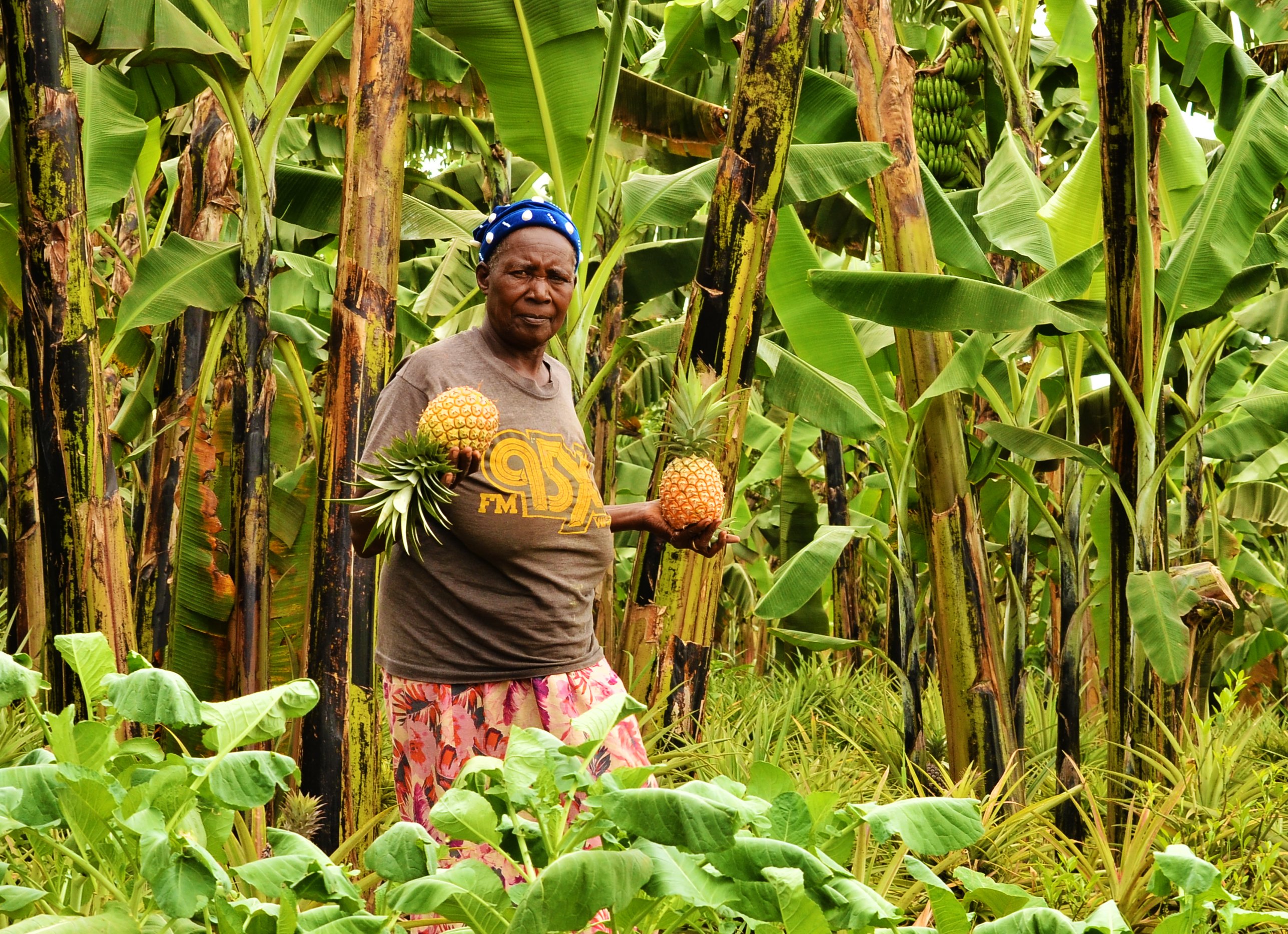Refugees embrace smart farming to boost income

Mr Ronald Dricile harvests some of his vegetables, which is supported by an irrigation scheme in Odupi Sub-county, Terego District on March 22, 2024. PHOTO/CLEMENT ALUMA
What you need to know:
- In refugee-host districts of West Nile, 90 percent of the population depend on agriculture.
Refugees and host community farmers in the Imvepi Refugee Settlement in West Nile Sub-region have remained resilient to grow crops despite high temperatures.
In the sub-region, the dry season runs from December to late March when the first rains are expected. However, some of the refugee and host community farmers have adopted climate-smart agriculture and are using river valleys to continue producing vegetables and reaping big from the ventures.
Speaking to the Daily Monitor at the weekend, Mr Ronald Dricile, a resident of Olevu Village, Orivu Parish, Odupi Sub-county in Terego District, said he gained courage after being trained in the village on how to practice smart agriculture.
“Vegetables have always been a challenge here, especially during dry seasons. Through the irrigation I applied, it has helped me to grow crops,’’ Mr Dricile says.
He grows sukuma wiki (collard greens), cabbage, okra, and other greens while another group, of which he is a member, has adapted to growing tomatoes.
“Every week, I earn between Shs120,000 and Shs130,000 from the sale of vegetables. I used to carry them to Opotani Market, but these days, buyers come to the garden. The money has brought peace and harmony at home because we can now change our diet,” Dricile says.
Mr Earnest Marku, a resident of Village 5 in Imvepi Refugee Settlement Camp, who fled war in South Sudan in 2016, said with the declining food rations given to them by the World Food Programme, they had to look for partners to support them in building resilience.
“The Norwegian Refugee Council (NRC) supported me with money which I used to rent land while they also drafted the agreement I signed with the landlord,” Mr Marku, who has 27 dependents, says.
Ms Zabella Andezu, a member of Drileba Ecabo Farmer’s Group, which grows vegetables, said: “People scramble over our vegetables when we take them to the market. The simple irrigation machine has been the game changer. At least all the children of our members no longer linger at home because we pay the school fees promptly.”
The media and communication coordinator at NRC, Mr Dickson Odur, said: “Farmers are now able to purchase some goods and services from suppliers within. And in doing so, they boost the local economy. They also exchange ideas between different cultures, which in turn improves the general cohesion.”
Terego chairperson Wilfred Saka said with unpredictable weather conditions in the refugee-host areas where 90 percent depend on agriculture, there is a need to adopt new technologies.
“We should be investing in small-scale irrigation because the food ratio has affected many refugees. To make it worse, some refugees are settled in areas which are not productive, so we need plausible arrangements where refugees and host communities can be supported jointly,” Mr Saka stated.
Imvepi and Rhino settlement camps have a refugee population of 169,800 while the host population is estimated to be 269,600, according to latest statistics from the Office of the Prime Minister.




